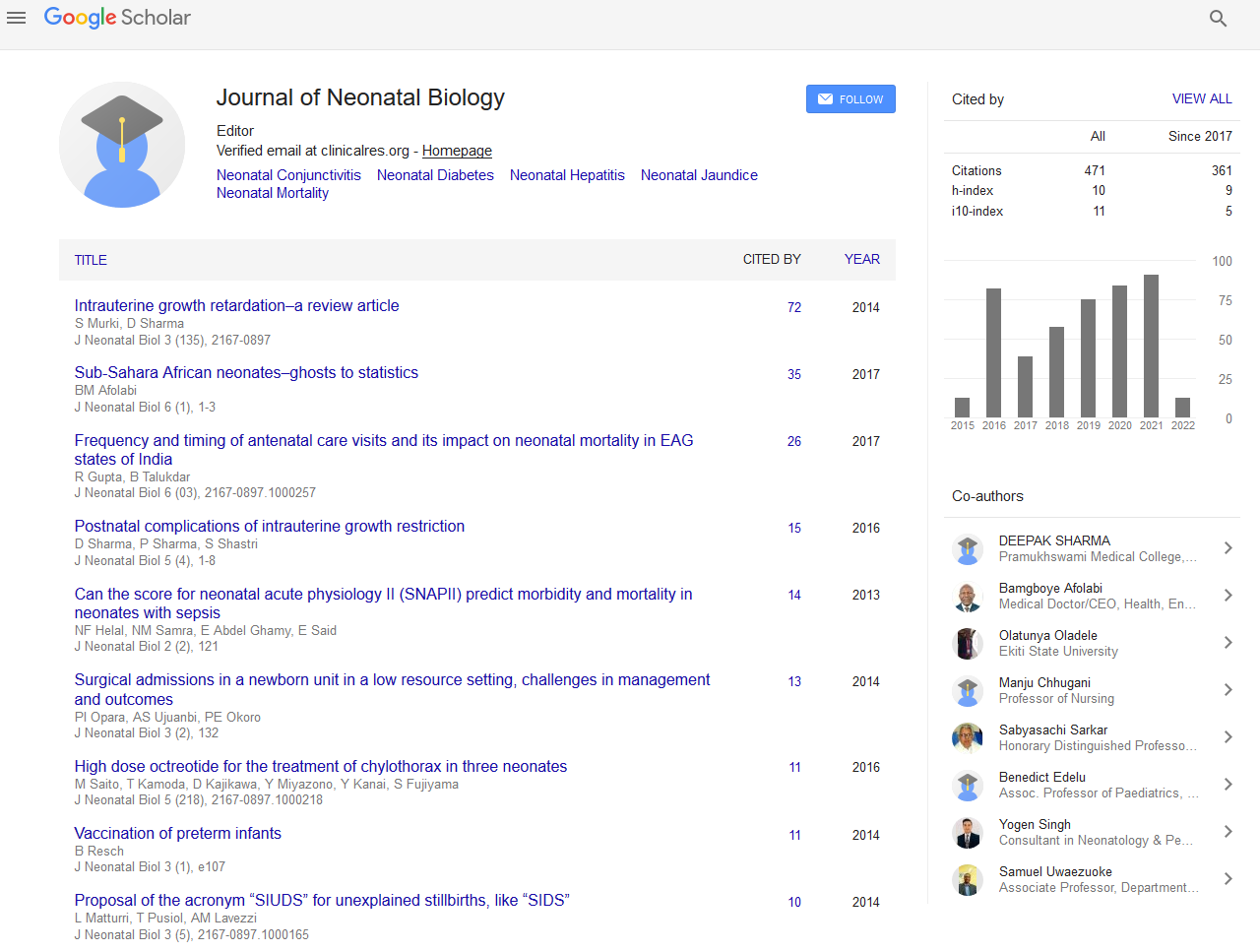PMC/PubMed Indexed Articles
Indexed In
- Genamics JournalSeek
- RefSeek
- Hamdard University
- EBSCO A-Z
- OCLC- WorldCat
- Publons
- Geneva Foundation for Medical Education and Research
- Euro Pub
- Google Scholar
Useful Links
Share This Page
Journal Flyer

Open Access Journals
- Agri and Aquaculture
- Biochemistry
- Bioinformatics & Systems Biology
- Business & Management
- Chemistry
- Clinical Sciences
- Engineering
- Food & Nutrition
- General Science
- Genetics & Molecular Biology
- Immunology & Microbiology
- Medical Sciences
- Neuroscience & Psychology
- Nursing & Health Care
- Pharmaceutical Sciences
Abstract
Endocrine and Immunological Alterations under Early Nasal Obstruction in Rats Wistar
Asma Dorbani, Abdelmadjid Bairi, Mohamed Laid Ouakid and Abdelkrim Tahraoui
For most animals smell is the primal sense. One they rely on to identify food, predators and mates. Indeed, for many organisms, odours arc their most efficient means of communicating with others and interpreting their surroundings. Innate behaviour in response to smell is essential to these organisms' survival and most likely result s from nonconscious perception of odours. This article is part of a research program dealing with the consequences of bilateral nasal obstruction (NO) during the postnatal development of mammals. Its aim was to test if the absence of nasal respiration and the related transition to chronic oral breathing could perturb the development of the individual. Therefore, a NO was induced in 8-day old rats (D8) and its effects were investigated 24 h after the treatment (D9), at the end of the obstruction period (D15) and six days after the reopening of the nostrils (D21). The results showed that NO affect some hormonal functions, these modifications were pronounced at D9, D15 and D21. Lastly, NO was associated with an atrophy of the brain at D15, it was maintained until D21. In rats, nasal obstruction can thus be considered like a multifactorial stressful situation. Its effects lasted until adulthood.


